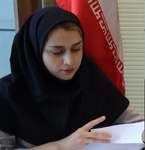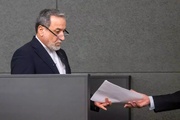The certainty that the crisis caused by the support to armed bands and the ISIL can be solved through the fight against terrorism, reinforces the point of view defended to the death by Moscow since the beginning of the conflagration in March 2011.
The Secretary of State John Kerry himself, summarizing yesterday the talks in Berlin with his German counterpart, Frank-Walter Steimeier, said the Kremlin should be involved in the resolution of the conflict in the Middle Eastern nation.
Russia should participate in the process of solving the problem. This is, among others, its duty, he said in remarks quoted by the channel 24.
In a 180-degree change of stance on the issue, the chief US diplomat acknowledged that the debate over the Syrian tragedy parallel to the 70th session of the UN General Assembly with the foreign ministers of Russia and Iran 'will open a range of possibilities.'
Such an attitude can be the antecedent to a favorable response from the White House to the Kremlin's initiative to try to solve the problem in three stages, according to what Moscow's ambassador in Lebanon, Alexander Zasypkin, told the television.
According to the diplomat, this project is the result of the dialogue between Moscow and nations that have influence on the protagonists of hostilities, largely stimulated from the outside.
Zasypkin said that the first step consists in bringing all the parties together to confront the ISIL terrorist group in Syria, while the second will seek to influence the regional and international forces press the armed groups into accepting a political solution.
A third step would lead into achieving an international drive to stop the backing to terrorists and prevent them from entering Syria from the neighboring countries, something demanded since March 2011 by Damascus and flouted by the West in its obsession to overthrow violently the constitutional government of President Bashar al-Assad.
The Russian leadership reiterates its willingness to keep a dialogue with Washington on all issues, including the issue of Syria. Russia never refused to hold this dialogue with the United States, reiterated the Foreign Ministry spokesman, Maria Zakharova.
According to sources in the Defense Ministry, Minister Sergei Shoigu and his US counterpart, Ashton Carter, addressed these issues recently, and judging from the position proclaimed yesterday by Kerry, they achieved an understanding.
From these results, Russian and international press considered possible to make concrete advances towards a negotiated solution based on the Geneva Declaration from June 30th, 2012.
President Vladimir Putin, meanwhile, made it clear that stability in Syria is vital to Russia's security, and in that sense, this country's persistent diplomacy and tenacious resistance in defense of its national interests against the pressures, seem to bring about a rapprochement to Moscow's views on the eve of the UN General Assembly.
Pointing to Putin's plan, the American conservative politician and columnist Patrick J. Buchanan, in an article published in a blog of the online magazine The American Conservative, insists that the White House should seize this opportunity to re-establish an effective cooperation to combat terrorism.
Once the government of al-Assad was ousted, terrorists would come to power, exterminate thousands of Syrian Alawites and Christians, and provoke a more serious migration crisis, Buchanan writes.
Putin wants to avoid that. And we don't?, he asks. So, why are dismissing his offer to work with us?, added the politician.
The spokesman of the American conservatives strikes home, by pointing out in his article that the problem for the United States in the Middle East is not the attitude of Moscow, but the point of view taken by the White House.
Washington allowed its own allies to convince it that a victory over the ISIL could not be achieved if al-Assad was not overthrown first, concludes Buchanan.
sc/l2p/lam/jpm
PL-6/MNA



























Your Comment